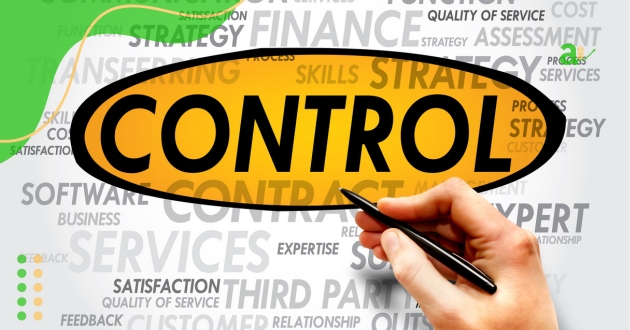When it comes to taking control of your finances, Best personal finance software can be a game changer. In today’s digital age, managing budgets, tracking expenses, and optimizing savings have never been easier. With the right software, you can streamline your financial goals, reduce unnecessary spending, and achieve long-term financial stability.
Finding the best personal finance software depends on individual needs, whether you’re looking to manage debt. Each platform offers various tools, from bill payment reminders to sophisticated budgeting features.
However, the best software provides more than just tracking—it enables you to visualize your financial health. As technology advances, best personal finance software options have evolved, incorporating features like multi-device synchronization, real-time tracking. This article will guide you through the top choices in personal finance software, breaking down their features, strengths.
Why Use Personal Finance Software?
Keeping track of finances manually can be tedious and error-prone. With personal finance software, you gain access to tools that automate budgeting. The software ensures you don’t miss bills, overspend, or neglect investment opportunities.
Personal finance software offers a range of benefits for anyone looking to manage their money more effectively. One of the primary advantages is the organization it provides. Instead of manually tracking expenses, income, and investments, the software consolidates everything into one place.
This can be especially helpful for those who struggle to stay organized or need a clear view of where their money is going each month.
Another major benefit is the ease of budgeting. Creating and sticking to a budget can be challenging, but personal finance software simplifies the process. It allows users to set spending limits for different categories and offers real-time updates on whether they are staying within those limits. This helps prevent overspending and encourages better financial discipline.
Debt management is also a key feature of many personal finance tools. With the ability to track outstanding debts, interest rates, and payment schedules.
Unlocking Financial Control: The Benefits of Managing Your Money with Ease

In addition to these practical advantages, using personal finance software saves time. Many programs automatically import bank transactions and categorize expenses, eliminating the need for manual entry and reducing the risk of errors. This streamlining of financial tasks can be a significant time-saver for busy individuals or families.
Furthermore, personal finance software often provides detailed reports and analysis. Users can view charts and graphs that give them a clear, visual representation of their spending patterns, savings.
Security is another important consideration. Modern personal finance software includes advanced security measures like encryption and two-factor authentication to ensure that users’ financial data remains safe. Many programs also offer automatic backups, providing peace of mind that their financial information is protected.
Finally, personal finance software supports long-term financial planning. It can assist users in planning for major life events, such as retirement, buying a home, or saving for education. By tracking savings and investments, users can stay on top of their financial goals and adjust their plans as needed.
In summary, personal finance software helps individuals and families maintain control over their finances by offering organization, budgeting tools, debt management, time savings, detailed analysis. It’s a powerful tool for anyone looking to improve their financial well-being.
Key Features to Look for in Personal Finance Software
Not all software offers the same features, so knowing what to look for is essential:
1- Budgeting Tools
Budgeting is the foundation of personal finance management. The best tools allow users to create customized budgets, categorize spending, and set savings goals. Look for software that offers flexible budgeting options and helps you adjust when you overspend in certain categories.
2- Expense Tracking
Expense tracking is crucial for understanding where your money is going. Most personal finance software syncs with bank accounts, credit cards, and loans to automatically categorize and track your expenses. This feature helps in identifying spending patterns and areas where you can cut back.
Advanced Tools for Investors
If you have a portfolio of investments, some personal finance software includes investment tracking features that allow you to monitor stocks, bonds. This is particularly useful for users who need to stay on top of their financial growth and want to ensure their investments align with their financial goals.
1- Investment Management
Software like Quicken and Empower offer tools for monitoring investment performance, tracking net worth, and planning for retirement. These platforms often provide insights into fees and returns, helping you make better financial decisions.
A key aspect of investment management is asset allocation, which refers to how an investor distributes their investments across different asset classes (e.g., stocks, bonds, cash, etc.). A well-balanced portfolio is crucial to optimizing returns while minimizing risks, especially during periods of market volatility. By diversifying across different asset types, investment managers can reduce the impact of poor performance in any single area.
In addition, professional investment managers use research and analysis to make informed decisions. They study financial markets, economic trends, and specific companies or assets to determine the best opportunities for investment. This process often includes the use of both fundamental and technical analysis to evaluate potential investments.
Choosing the Right Personal Finance Software
In conclusion, staying informed about the latest financial trends and developments is crucial for making sound financial decisions, whether for personal budgeting or broader investment strategies.
By regularly keeping up with Current Global Economy News, individuals can better understand economic shifts that may impact their savings, spending, and overall financial plans.
Having access to reliable information allows you to adjust your approach and ensure you’re prepared for both opportunities and challenges in the ever-changing financial landscape.
In conclusion, choosing the right tool for managing your finances can have a significant impact on your budgeting and savings journey. With so many options available, it’s important to select one that aligns with your financial goals and personal preferences. These tools not only simplify the process of tracking expenses but also provide valuable insights into spending habits.
Moreover, many of these solutions offer additional features such as debt management and investment tracking, which can help you stay on top of your overall financial health. As you begin using one of these tools.
Transitioning from manual tracking to digital tools may seem daunting, but the benefits far outweigh the initial learning curve. With best personal finance software, you can finally take control of your financial future.
Whether you’re just starting out or looking to optimize your current financial strategy, using Quicken provides the structure and insights needed to make smarter decisions and secure your financial future.
Conclusion
In conclusion, selecting the best personal finance software for budgeting and savings depends on individual financial goals, habits, and preferences. The ideal software should offer user-friendly interfaces, comprehensive budgeting tools, savings tracking, and effective reporting features. Many top options, such as YNAB (You Need a Budget), Mint, and Personal Capital, provide customizable plans that help users manage expenses, set savings goals, and monitor investments. Moreover, automation features, security protocols, and cross-platform accessibility are essential for ensuring an optimal experience. Ultimately, the best software will align with the user’s needs, fostering financial discipline and promoting long-term financial health.
For those looking to focus more on savings, certain platforms stand out by offering goal-setting features that help users track and automate their progress. Software like Personal Capital not only focuses on day-to-day budgeting but also provides investment tracking, which can be particularly useful for those planning long-term savings or retirement. Some apps allow users to set up savings goals and link them to specific accounts, while others provide detailed reports on spending trends that can highlight areas for potential savings. This way, users are empowered to make more informed financial decisions.





